Olympic park planning powers go to four councils
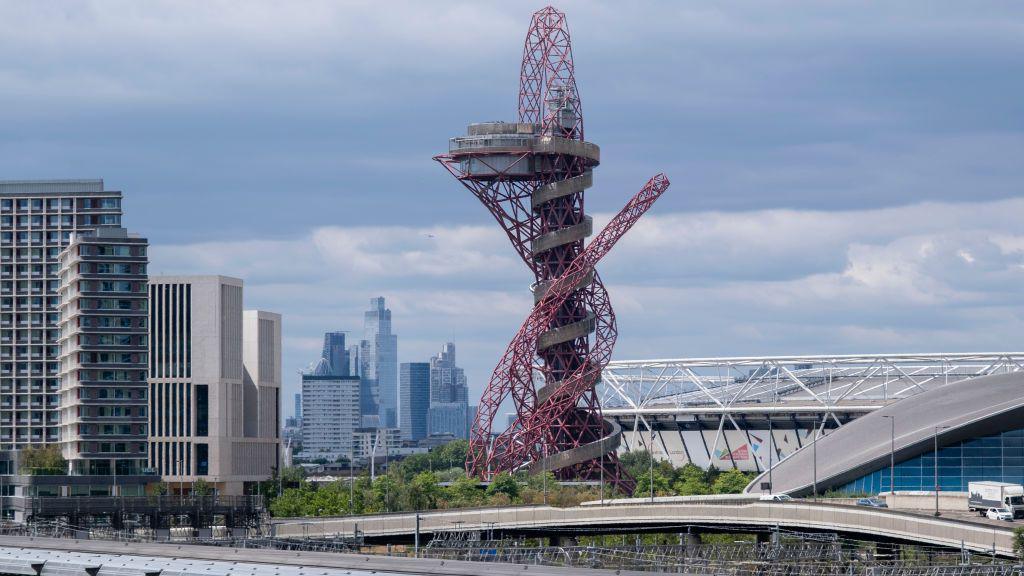
Control over the Queen Elizabeth Olympic Park will go to to Newham, Hackney, Tower Hamlets and Waltham Forest councils
- Published
Four London councils will be handed control over the Queen Elizabeth Olympic Park later this year.
For 12 years, the London Legacy Development Corporation (LLDC) has been coordinating development in the east London park and surrounding areas.
On 1 December it will hand most of its powers, including planning, to Newham, Hackney, Tower Hamlets and Waltham Forest councils, which all have boundaries within the park.
Lyn Garner, chief executive of the LLDC, said she was proud of its legacy.
The area has seen the creation of new sporting and cultural venues like the London Stadium and the London College of Fashion, as well the building of thousands of new homes.
The LLDC will spend the next five or so years completing existing housing projects before wrapping up.
Ms Garner, who will stand down when the changeover happens, said the park drives "economic return" for London.
Residents 'betrayed' over Olympics housing pledge
- Published20 July 2022
Olympic Park legacy: Does the future look golden?
- Published22 July 2022
"It is the largest investment in arts, culture and higher education that the public sector has made in this country since - believe it or not - the days of the Great Exhibition in 1851," she said.
"If we look at the London Stadium for example, when we have a major league baseball weekend, that drives more than £40m into the economy, which is a huge amount for a single weekend.
"But that's spread over the whole of the economy and it's not necessarily the local person feeling that."
Ms Garner added there were a "huge number of local jobs" in the park, with approximately 70% of roles filled by local people.
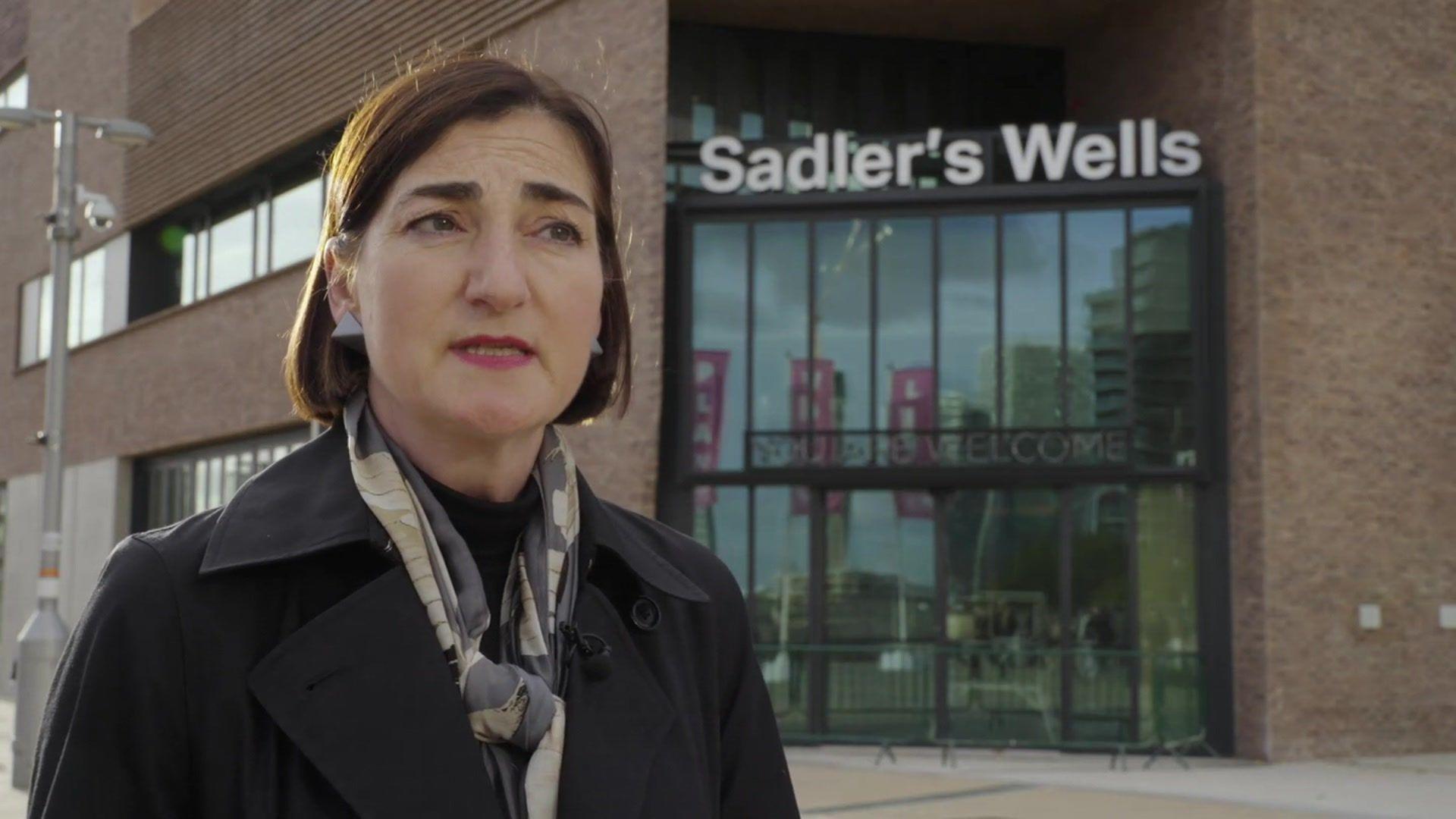
Britannia Morton, executive director at Sadler's Wells, said at least 50% of jobs at the new theatre would go to local people
Sadler's Wells East, a new theatre for dance, is another new venue set to open next February.
It is part of the East Bank, a new cultural quarter that includes east London outposts of the London College of Fashion and the V&A museum.
Britannia Morton, executive director at Sadler's Wells, said: "We've got a target to make sure that at least 50% of new jobs that we have in this new building will go to local people from the surrounding boroughs.
"In terms of making the place accessible, we have over the door 'You are welcome', and we mean that.
"One of the ways that we are doing that is that 50% of tickets will be priced at £25 or under."
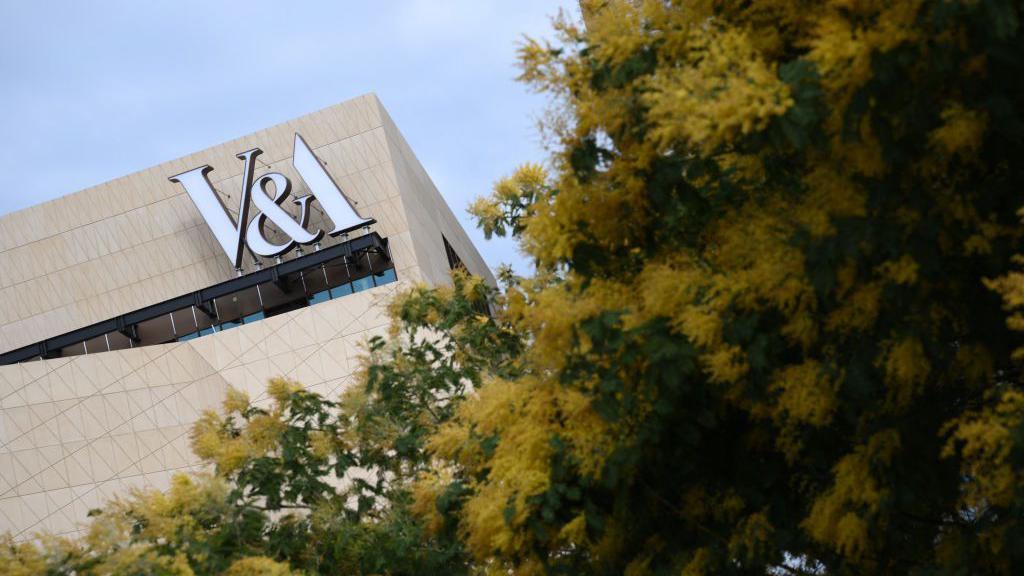
Lyn Garner, chief executive of the LLDC, said the area drove "economic return" for the capital
Several residents told BBC London the area had improved significantly since work there began.
One local resident said the park "looked nicer" since the Olympics, and "years ago it used to be a bit rubbish".
Another man added: "Everything is safer now. It's more residential, there are more families."
And a woman who runs a local business said she had "seen a difference", with more international visitors coming to the area.
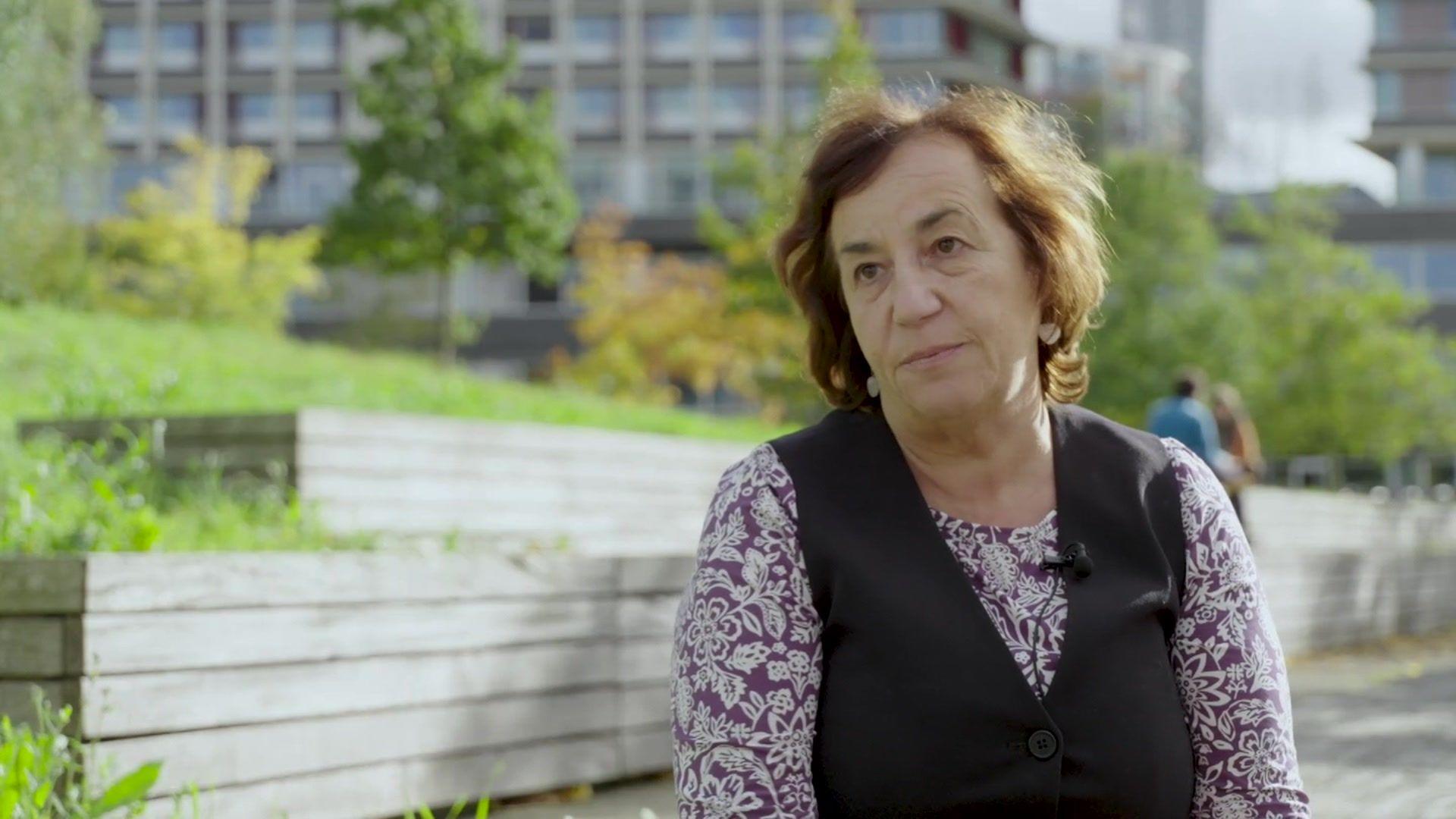
Prof Penny Bernstock said the housing built by the LLDC has not met the housing need in Newham
Nevertheless, even with nearly 12,000 homes having been built in and around the park since 2012, there are questions about the housing which has been created.
Prof Penny Bernstock, from the Housing Unit in the University Of East London, said: "Newham borough is one of the legacy boroughs, and Newham has one of the highest levels of housing need in England.
"We won the Olympics because we were going to address the high levels of deprivation in the area.
"Currently, Newham has a massive housing crisis, and what we've built on the park hasn't met those needs."
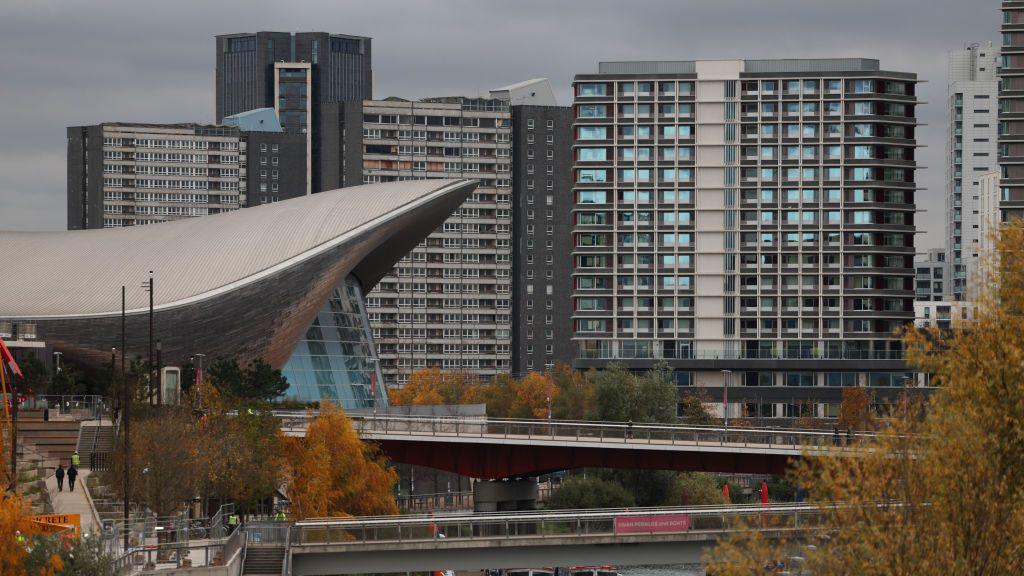
Affordable housing targets have changed for the park over the years
Ms Garner said: "It's really tricky for affordable housing in the financial environment that we face.
"We've always had the maximum numbers of affordable housing fitting with mayoral policy," she said, adding that "the athletes village was converted 50% affordable rent, 50% private rent".
Watch the full story on BBC Politics London on iPlayer.
Listen to the best of BBC Radio London on Sounds and follow BBC London on Facebook, external, X, external and Instagram, external. Send your story ideas to hello.bbclondon@bbc.co.uk, external